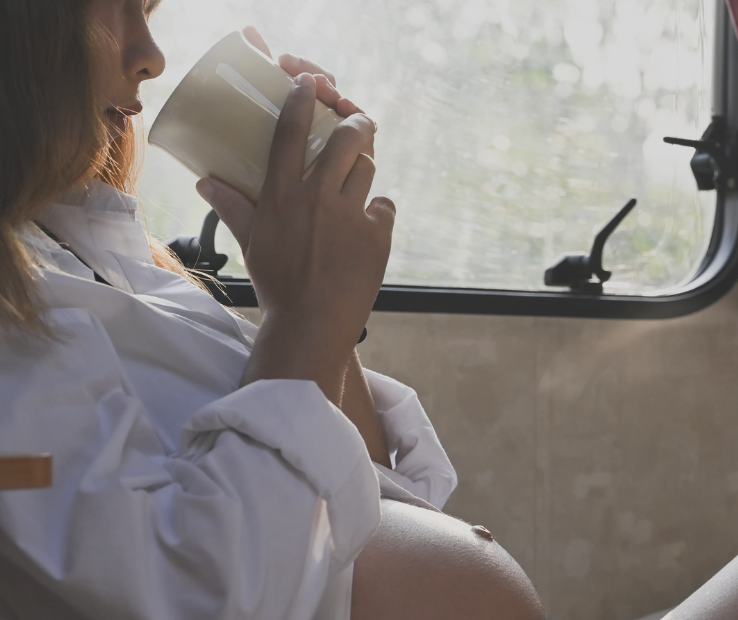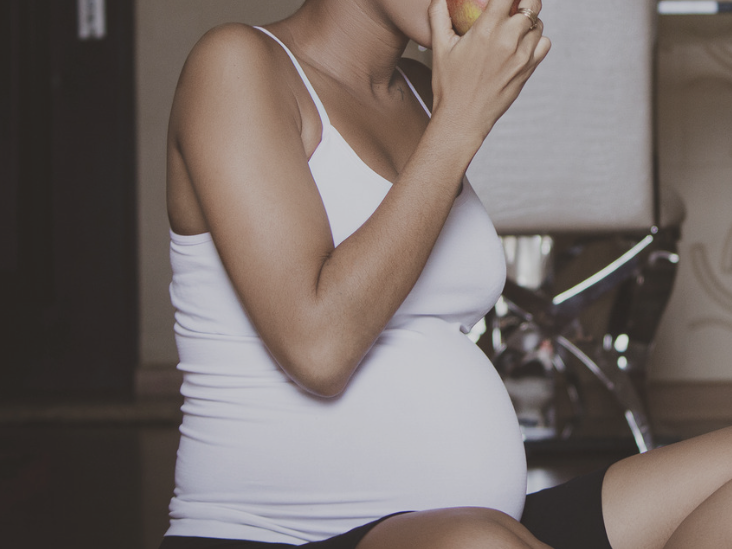Can I have sushi?
What’s the deal with herbal tea?
I’m not supposed to eat deli meat…right?
There can be a lot of overwhelm with what to avoid during pregnancy. But in actuality, there are really only a few things that need to be limited. So we took the guess work out of it and broke it down – plain and simple. Here’s everything you need to know about what to limit during pregnancy.
But first, let’s shift the focus here…
Before going into the things that need to be limited, let’s first talk about what should be included.
When we shift our mindset away from the “restrictive” and more towards the “abundance” amazing things can happen.
So before you go through this blog and begin to remove things from you plate, I’ll invite you to first think about what you can include.
How can you bring in more color?
How can you include more diversity of plants?
How can you choose more nutrient dense foods?
Only when we create a plate of abundance can we then begin to talk about taking things off of it.

With that, here are the…
6 Foods to Limit or Avoid During Pregnancy
1. Raw or undercooked proteins:
Raw or undercooked meat, fish and eggs carry an increased risk of bacteria contamination. See dishes like a steak tartare and soft scrambled eggs have not had enough heat applied to cook the protein fully, and as a result, not enough to kill off the potential bacteria.
Put simply, an increased risk of bacteria means an increased risk of foodborne illness, from campylobacteria to salmonella. While many of us can handle “food poisoning” or the slew of uncomfortable symptoms brought on by these germs, baby’s immune system is not fully developed and as such, is not adequately ready to handle such a threat.
Some sneaky ways that these raw or undercooked foods may come in are…
- Soft scrambled, soft boiled, or sunny side up eggs (avoid a runny yolk)
- Cured or smoked fish, like lox
- Hot dogs and deli meats
- Sushi, ceviche, sashimi and crudo
- Patés or meat spreads
- Homemade sauces that use raw egg, such as Caesar salad or hollandaise
- Cake batter and raw cookie dough
2. Unpasteurized products:
Unpasteurized products, from juice to cheese, carry a similar risk. While these foods are often touted for their health benefits, such as live enzymes & a high nutrient content, they do carrier a higher risk of harmful bacteria, so it is safer to save these products for another stage of life.
While most dairy is pasteurized in the U.S. to protect consumers from foodborne illness, you’ll want to be extra mindful when buying dairy products and soft cheeses from farmers market or directly from farmers. Unpasteurized dairy products carry the risk of listeria, which can cause flu-like symptoms for mom and potentially harm baby.
Similarly, be cautious of fresh pressed juices or foods that are made with them.
3. Raw Sprouts:
Alfalfa, clover, radish, mung bean and wheatgrass sprouts are little nutrient powerhouses, however, due to the cracks in their shell, they can quickly become a breeding ground for bacteria. This is why pregnant women are often told to avoid these little greens.
However, if you do want to eat them, then you’ll just need to do so safely. Enjoy sprouts by cooking them until they are steaming to kill off any bacteria.

4. High Mercury Fish:
While fish is a wonderful addition to a prenatal diet, there are some fish we want to be more mindful of.
Mercury is a heavy metal that at high levels can accumulate and impact the brain, heart, kidneys, and immune system. High levels of mercury in the bloodstream can also impact baby’s nervous system, vision, hearing, and cognition.
So how do we get mercury? Mercury is released into the air from environmental actions, such as forest fires or man-made burning of coal, etc. Here, it settles into the land and water, where bacteria turn it into methylmercury. Then fish and shellfish in the water begin to absorb and consume this metal.
But some fish carry a greater risk than others. Large fish that live a long time are higher in mercury because they simply consume more things that also have mercury. These high mercury fish that should be avoided include…
- Albacore, BigEye, Ahi, Yellowfin tuna
- Swordfish
- Orange roughy
- King mackerel
- Shark
- Chilean Sea Bass
- Perch
- Grouper
To learn more about fish during pregnancy, check this article out now.
5. Caffeine:
This is a tricky one – probably the hardest line to balance. So I’ll start by saying that the general recommendation during is to consume no more than 200 mg caffeine daily. For reference, this about 1-2 cups of coffee.
However, there has been quite a bit of research showing that caffeine lower than this may negatively impact baby.
All in all, caffeine is something we certainly want to limit during pregnancy. Here is your quick reference guide for the caffeine content in foods:
- 8-oz cup coffee: 95 mg
- 1 shot espresso: 65 mg
- 8-oz cup black tea: 45 mg
- 12 oz soda: 35-55 mg
- 1 oz. dark chocolate: 25 mg
- ½ tsp matcha: 15-35 mg
6. Alcohol:
No amount of alcohol is considered safe during pregnancy. Alcohol can pass through the placenta, impacting baby’s brain development and other critical organs, causing premature birth and potential birth defects.
A couple of other things to look out for:
We just want to try and keep you and baby as safe as possible, so this means lowering the overall risk of illnesses. We can do this by thoroughly washing fruits and veggies, avoiding deli cases of foods and pre-made chicken or egg salads, and opting out of those frozen yogurt machines.
Finally, it’d be amiss if there was not a mention of herbs. Certain herbs have been used for centuries in various cultures during pregnancy; however, we take a cautious approach with them here in the West. I want to be clear that the “recommendation to limit herbs” during pregnancy is due to a lack of research since studies on pregnant women are an ethical concern. However, I want to point out that a lack of research is not the same thing as research indicating something bad. And the line is constantly blurred – even within the Western OBGYN community, some will tell you to avoid ginger and chamomile tea at all costs, while others will say it is okay. The choice is yours, but I recommend working with an herbalist or a healthcare practitioner that is well educated on herbs if you are going to have them during pregnancy.

share this post >>
share this post >>